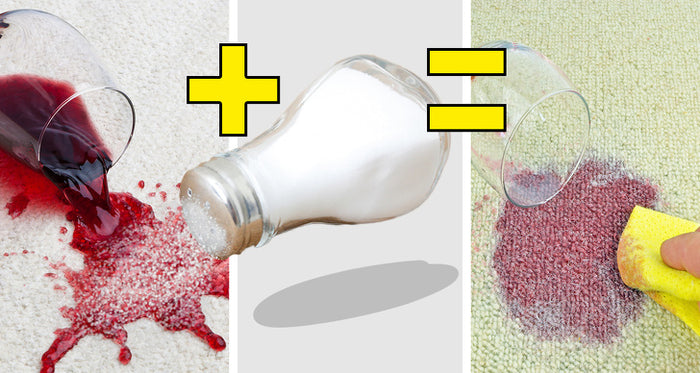The Four Goals of Misbehavior Series: Part Two (Revenge and Inadequacy)

Is your child’s behavior baffling you? It can be difficult to understand what is motivating a child’s poor behavior. In this article, I’m continuing the discussion of Dr. Rudolf Dreikurs work on his four goals of misbehavior. He was a psychiatrist who founded and was the medical director of the Community Child Guidance Center in Chicago. Dreikurs was influenced by social psychologist Alfred Adler who believed that the central motivation of all humans is to belong and be accepted by others. He believed that all behavior was purposeful and directed toward achieving social approval. Dreikurs suggested that all misbehavior is eh result of a child’s mistaken assumption about how to find a place and gain status.
Following is an overview of the last two of Dreikurs’ four goals of misbehavior along with my own suggestions on how to deal with each one.
Goal three: Revenge
I think author Kylie Rymanowicz said it best: “Revenge is a dish best served cold and sometimes it’s served in a sippy cup.” When a child feels hurt, they may lash out and try to hurt you. That’s because they don’t yet have the maturity or the tools to deal with such difficult emotions. This kind of behavior is perhaps the most difficult to see through. When a child is exhibiting revenge-seeking behavior, it’s easy to see him as bad rather than as a hurting child. Only when we see past the behavior to the hurt can we truly help stop this kind of behavior. Resist the urge to retaliate or punish because this only adds to the pain.
To deal with and thwart this kind of behavior, it’s important to establish boundaries. Helping children to understand and stay within the boundaries we set makes them feel safe and secure – like the yellow lines on the road. Without those yellow lines, driving would be scary. Without boundaries, life is scary. Boundaries are necessary; it’s the way we enforce those boundaries that determine whether we are being positive parents. Make sure the boundaries are fair and age-appropriate, and hold them lovingly, providing empathy and understanding when children get upset about the rules. Talk about the importance of respectful communication and discuss what is appropriate and respectful and what isn’t.
Become your child’s emotion coach. Help them understand and name their emotions, and talk about ways to work through those emotions. This is both a skill and a developmental milestone. Very young children cannot be expected to control their emotions consistently because they do not yet have the cognitive resources to do so, but we can still talk about emotions to set the foundation for them to build upon as they grow.
Next, replace punishment with problem-solving to give your child the skills needed to make amends and move forward. Ask questions like “what caused you to do this,” “what could you have done differently,” and “how are you going to fix this?” It’s easy to dole out a punishment and make them “serve time,” but to really raise responsible people, we have to give them responsibility, and that includes the responsibility to correct their own mistakes.
Finally, work on strengthening your relationship with that child. A positive, healthy relationship is so important in a child’s life, and yet we so often use discipline techniques and tricks that harm the relationship and sew distrust. When you show up as a loving, positive leader, you’ll foster a trusting relationship that will help you lead your child down the right path.
Goal four: Display of inadequacy.
This type of behavior shows up when the child has given up. They may feel unworthy or inferior, and their behavior often looks like withdrawal, self-criticism, and a negative attitude. This kind of behavior is exasperating for parents who want to see our children happy, confident, and successful.
Stop all criticism. Critical words diminish the child’s sense of self and break confidence. Criticism is one of the “four horsemen” according to the work of Dr. John Gottman; these are four relationship destroyers. Criticism is especially harmful to sensitive children and children whose love language is words of affirmation. Of course, parents aren’t perfect just as our children aren’t perfect, so if you speak hurtful criticism to your child and see the light dim in their eyes a bit, simply apologize and get on with soul-building encouragement.
Be your child’s light reflector. Think about this. The people in our lives who look past our faults and see our beauty, the ones who still see the light in us during the times we feel only darkness, those are the people who save us from the depths of blackness. Those are the ones who help us see our own beauty and light again. We all need that person - someone who reflects our light back at us so we can see it, too. That's what a parent should be. That’s what it means to become light reflectors. We should always seek to see our child’s light, to hold it sacred, and to show it to them when they need a glimpse.
Finally, when you see behaviors that are a display of inadequacy, focus on and encourage your child’s positive attempts and behaviors, no matter how small. Offer encouraging words daily. Try these 50 positive affirmations for kids.
Look for part one of this series where I discuss Dr. Dreikurs’ first two goals of misbehavior, attention and power.
Sources:





















